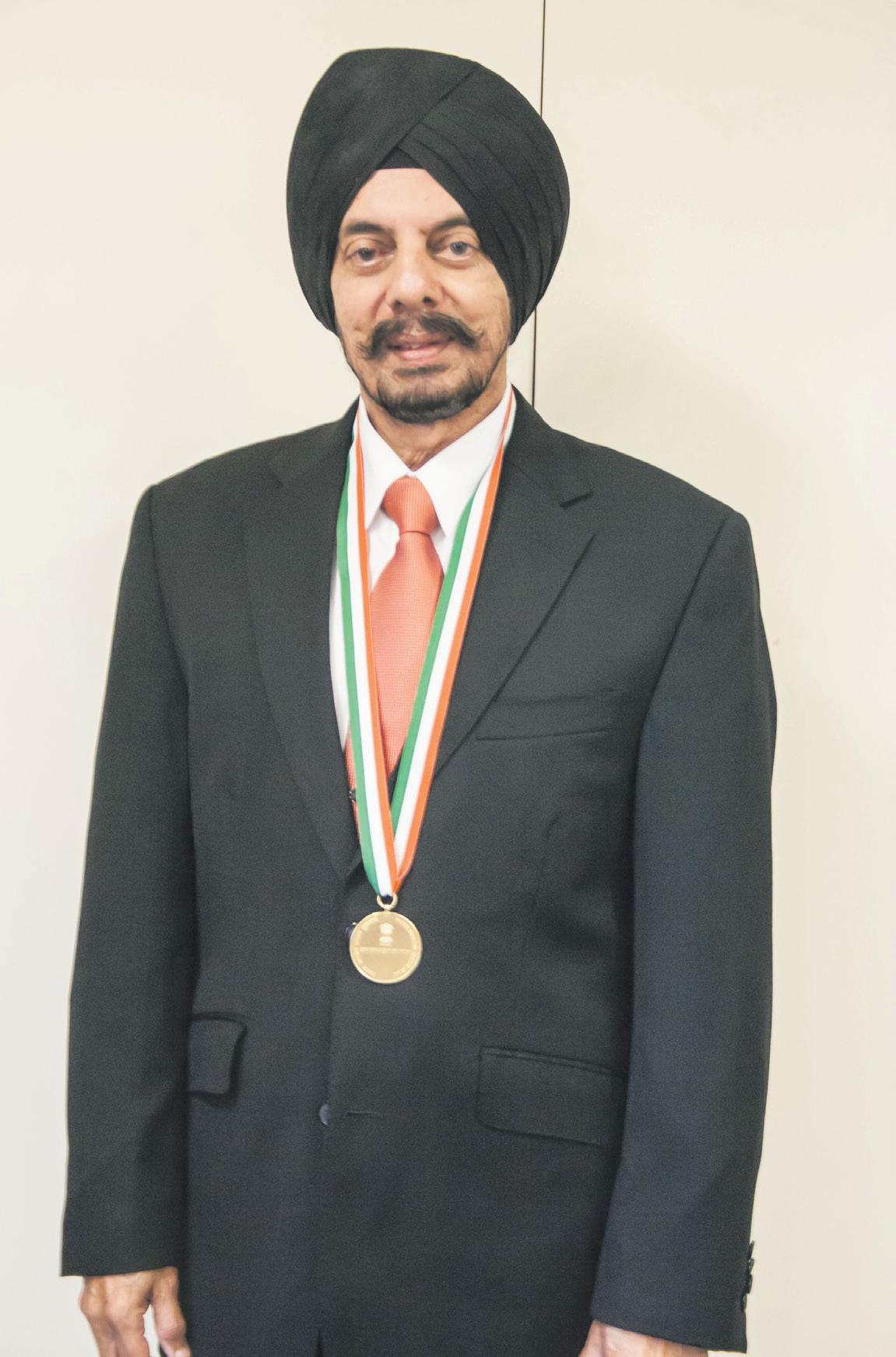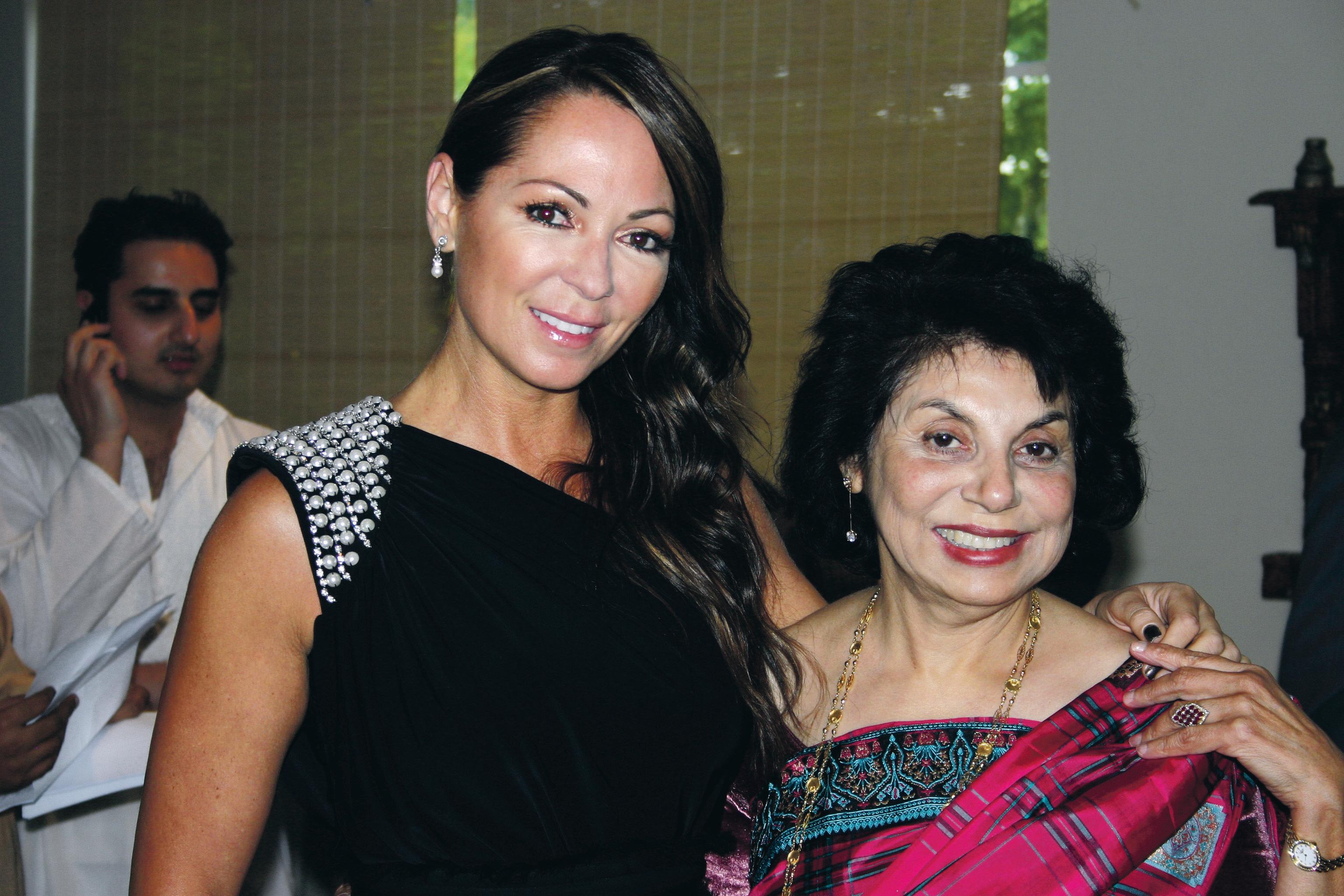
3 minute read
anisation brings haratiya award
from 2013-01 Sydney (2)
by Indian Link
Overseas Indian Affairs Vayalar
Ravi urged the delegates to air their issues openly at these sessions and exchange views and perspectives. Dr. Aurora who voluntarily attended these sessions said, “It was appalling to hear the stories of discrimination, lack of human rights and exploitation of people especially the plight of several illiterate migrants who ended up in prison due to an error in the paperwork filled in by celebration souvenir, include:
• Establishment of the Victorian Indian Community Charitable Trust (VICCT) in 1986 for the provision of permanent housing and financial assistance for disadvantaged persons.
• Successfully lobbying the Victorian State Government in 1990 to exempt Sikhs from legislation introduced in Parliament to ban the carrying of knives. This legislation affected baptized Sikhs and prevented them from carrying a kirpan. Legislation stating compulsory wearing of helmets while riding a pushbike was also adopted to accommodate turbaned Sikhs.
• Successfully lobbying the Indian Government in 1991 (for three years) to establish consular services for Indians in Melbourne.
• Introducing in 1992 ‘Mehfil’ nights to showcase emerging and established artists in the field of music and arts. These continue to this day and provide the Indian community an opportunity to celebrate their culture and people.
• Applying pressure to both sides of Government over a three-year period for the introduction of a two-year waiting period for Spouse Visas in 1995. This resulted in a fairer Visa Process for overseas spouses from all countries and the AISV helped in establishing a fair immigration policy.
• Helping establish in 1999, in partnership with Australian Unity, a Travel Insurance fund for overseas visitors to enable them to gain access to hospitals and medical care. This served to take the burden off the State Government and in some cases the children of elderly parents who were
Psychiatrist
Dr Manjula O’Connor, Vice-President AISV supporting their parent’s travel to Australia.
• Conducting a two-year research project in 2009 on the issue of the international students and putting forth 45 recommendations to the Federal and State Governments. Ms. Priya Saratchandran wrote the Paper and the recommendations were accepted and changes made to the status of international students accordingly.
• Creating a taskforce in 2011 against domestic violence in Indian and ethnic communities to help the victims of such violence with the help of Dr. Manjula O’Connor. This was in response to the increasing instances of domestic violence within the community and the need to offer cultural specific assistance.

Dr Aurora at PBD 2013
The theme of the 2013 Pravasi Bhartiya Divas was: Engaging Diaspora: The Indian Growth Story Many seminars, workshops and events linked to the theme were held including an exclusive session that gave a platform to people from Kerala in the Gulf to air their grievances. In his inaugural address, Union Minister for
He continued, “During my stay I briefly met Salman Khurshid, Cabinet Minister of the Ministry ; columnist and author Shashi Tharoor; Deputy Chief Minister of Punjab Sukhbir Singh Badal, and had a meeting with Minister of State for from Patiala. I also took the opportunity to remind the Prime Minister that his visit to Australia was long overdue” said Dr. Aurora.
Conventions like these provide a platform to the overseas Indian community to engage with the government for mutually beneficial activities. They are also useful in networking among the overseas Indian community residing in various parts of the world and enable them to share their experiences in various fields. The PBD’s main objective is to strengthen the diaspora’s engagement with India. “In that sense the PBD met its objective,” remarked Dr Aurora. “However I wish the general public had more access to the Prime Minister and President. They were both kept away from the public under very tight security and I couldn’t help comparing this with Australia and the fact that we have relatively easier access to people in power here”.
Future directions for AISV
Psychiatrist Dr Manjula O’Connor, Vice President of AISV, and Chair of the Taskforce Against Domestic Violence in Indian and Ethnic Communities, commented on the future direction of AISV.
“In 2010-2012 we worked on domestic violence with women of the Indian community. This year we plan to work with Indian men. This is a prevention strategy.
Prevention of domestic violence is considered now as a more useful and fruitful area to target. The Taskforce will recruit men from the general Indian community. The project is an action research project, and will be conducted in partnership between AISV, the Melbourne University and the Australasian Centre for Human Rights and Health (ACHRH),” she said. “We have been fortunate in forming partnerships with a taxi company (who recruit young Indian men) and the Sikh Women’s Network from Western Victoria in this project. This project with Indian men will consist of using community-based interactive theatre to explore Indian men’s concept of DV; simultaneously raising awareness on the issue including legal and criminal implications. We have secured partial funding for this project from the Victoria Multicultural Commission and partly from ACHRH”.
When asked if achieving this award would make any difference to how AISV will conduct itself in future, Dr. Gurdip Aurora said, “We have worked hard for the last 50 years and we will continue to do so in future. There will be no change to our normal routine and we will keep working with the same dedication and keep contributing significantly to the community,” he said in conclusion.










